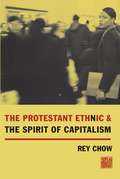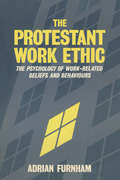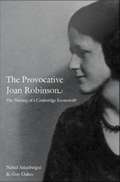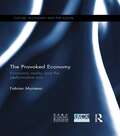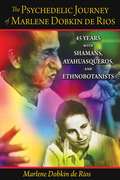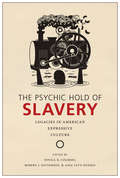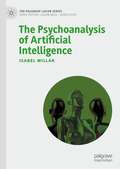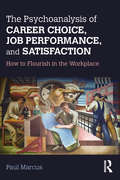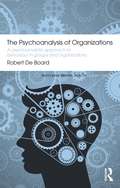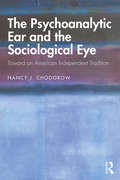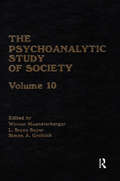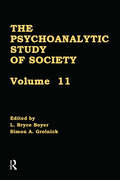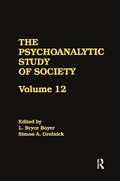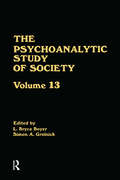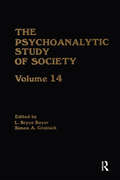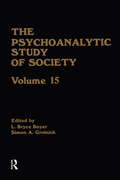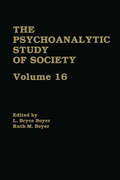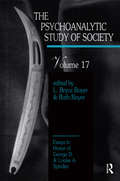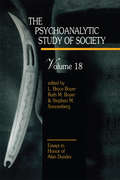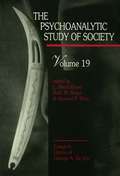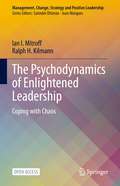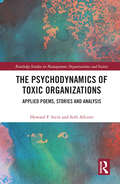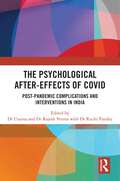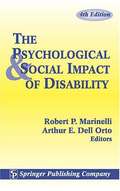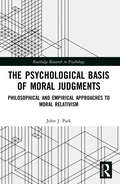- Table View
- List View
The Protestant Ethnic and the Spirit of Capitalism
by Rey ChowIn late-capitalist Western society, cross-ethnic cultural transactions are an inevitable daily routine. Yet, according to acclaimed cultural critic Rey Chow, the notion of ethnicity as it is currently used is theoretically ambivalent, confusing, indeed self-contradictory, straddling as it does an uneasy boundary between a universalist rhetoric of inclusion on the one hand, and actual, lived experiences of violence and intolerance on the other. To drastically reconceptualize ethnicity in the contemporary world, Chow proposes that it be examined in conjunction with Max Weber's famous theory about the Protestant work ethic and capitalism, which holds that secular belief in salvation often collaborates effectively with the interpellation, disciplining, and rewarding of subjects constituted by specific forms of labor. The charged figure that results from such a collaboration, resonant with the economic, psychological, and spiritual implications of the word "protest, " is what she refers to as the protestant ethnic.Chow explores the vicissitudes of cross-ethnic representational politics in a diverse range of texts across multiple genres, including the writings of Georg Lukacs, Michel Foucault, Max Weber, Jacques Derrida, Fredric Jameson, Etienne Balibar, Charlotte Brontë, Garrett Hongo, John Yau, and Frantz Fanon; the films of Alfred Hitchcock, Marguerite Duras, and Alain Resnais; and the cartoon drawings of Larry Feign. Tracing out hauntingly familiar scenarios from stereotyping and coercive mimeticism to collective narcissistic abjection, the rise of white feminist racial power, and intraethnic ressentiment, Chow articulates a series of interlocking critical dialogues that challenge readers into hitherto unimagined ways of thinking about an urgent topic.
The Protestant Work Ethic: The Psychology of Work Related Beliefs and Behaviours
by Adrian FurnhamFirst Published in 1990. Routledge is an imprint of Taylor & Francis, an informa company.
The Provocativo Joan Robinson: The Making of a Cambridge Economist
by Nahid Aslanbeigui Guy OakesOne of the most original and prolific economists of the twentieth century, Joan Robinson (1903-83) is widely regarded as the most important woman in the history of economic thought. Robinson studied economics at Cambridge University, where she made a career that lasted some fifty years. She was an unlikely candidate for success at Cambridge. A young woman in 1930 in a university dominated by men, she succeeded despite not having a remarkable academic record, a college fellowship, significant publications, or a powerful patron. In The Provocative Joan Robinson, Nahid Aslanbeigui and Guy Oakes trace the strategies and tactics Robinson used to create her professional identity as a Cambridge economist in the 1930s, examining how she recruited mentors and advocates, carefully defined her objectives, and deftly pursued and exploited opportunities. Aslanbeigui and Oakes demonstrate that Robinson's professional identity was thoroughly embedded in a local scientific culture in which the Cambridge economists A. C. Pigou, John Maynard Keynes, Dennis Robertson, Piero Sraffa, Richard Kahn (Robinson's closest friend on the Cambridge faculty), and her husband Austin Robinson were important figures. Although the economists Joan Robinson most admired--Pigou, Keynes, and their mentor Alfred Marshall--had discovered ideas of singular greatness, she was convinced that each had failed to grasp the essential theoretical significance of his own work. She made it her mission to recast their work both to illuminate their major contributions and to redefine a Cambridge tradition of economic thought. Based on the extensive correspondence of Robinson and her colleagues, The Provocative Joan Robinson is the story of a remarkable woman, the intellectual and social world of a legendary group of economists, and the interplay between ideas, ambitions, and disciplinary communities.
The Provoked Economy: Economic Reality and the Performative Turn (CRESC)
by Fabian MuniesaDo things such as performance indicators, valuation formulas, consumer tests, stock prices or financial contracts represent an external reality? Or do they rather constitute, in a performative fashion, what they refer to? The Provoked Economy tackles this question from a pragmatist angle, considering economic reality as a ceaselessly provoked reality. It takes the reader through a series of diverse empirical sites – from public administrations to stock exchanges, from investment banks to marketing facilities and business schools – in order to explore what can be seen from such a demanding standpoint. It demonstrates that descriptions of economic objects do actually produce economic objects and that the simulacrum of an economic act is indeed a form of realization. It also shows that provoking economic reality means facing practical tests in which what ought to be economic or not is subject to elaboration and controversy. This book opens paths for empirical investigation in the social sciences, but also for the philosophical renewal of the critique of economic reality. It will be useful for students and scholars in social theory, sociology, anthropology, philosophy and economics.
The Psychedelic Journey of Marlene Dobkin de Rios: 45 Years with Shamans, Ayahuasqueros, and Ethnobotanists
by Marlene Dobkin de RiosA look inside almost half a century of pioneering research in the Amazon and Peru by a noted anthropologist studying hallucinogens, including ayahuasca • Reveals how ayahuasca successfully treats psychological and emotional disorders • Examines adolescent drug use from a cross-cultural perspective • Discusses the deleterious effects of drug tourism in the Amazon Ayahuasca is an alkaloid-rich psychoactive concoction indigenous to South America that has been employed by shamans for millennia as a spirit drug for divinatory and healing purposes. Although the late Harvard ethnobotanist Richard Evans Schultes was credited in the early 1950s as being the first to document the use of ayahuasca, other researchers, such as the distinguished anthropologist Marlene Dobkin de Rios, were responsible for furthering his findings and uncovering the curative capabilities of this amazing compound. The Psychedelic Journey of Marlene Dobkin de Rios presents the accumulated experience of de Rios’s 45 years of pioneering field studies in the area of hallucinogens in Peru and the Amazon. Her investigation into ayahuasca--which she undertook in collaboration with more than a dozen traditional Mestizo folk curanderos, shamans, and fellow ethnobotanists--focuses on the use of this revolutionary plant in the treatment of recalcitrant psychological and emotional disorders. She also shares some of her theories that prove that the ancient Maya used psychedelic plants as part of their religious rituals, thereby demonstrating the impact of plant psychedelics on human prehistory. In addition, Dobkin de Rios examines altered states of consciousness derived from the use of biofeedback and hypnosis and discusses her current work on the deleterious effects of drug tourism in the Amazon.
The Psychic Hold of Slavery: Legacies in American Expressive Culture
by Robert J. Patterson Margo Natalie Crawford Brandon J. Manning Aida Levy-Hussen Régine Michelle Jean-Charles Calvin Warren Soyica Diggs Colbert Michael Chaney Douglas A. Jones Jr. Gershun AvilezWhat would it mean to "get over slavery"? Is such a thing possible? Is it even desirable? Should we perceive the psychic hold of slavery as a set of mental manacles that hold us back from imagining a postracist America? Or could the psychic hold of slavery be understood as a tool, helping us get a grip on the systemic racial inequalities and restricted liberties that persist in the present day? Featuring original essays from an array of established and emerging scholars in the interdisciplinary field of African American studies, The Psychic Hold of Slavery offers a nuanced dialogue upon these questions. With a painful awareness that our understanding of the past informs our understanding of the present--and vice versa--the contributors place slavery's historical legacies in conversation with twenty-first-century manifestations of antiblack violence, dehumanization, and social death. Through an exploration of film, drama, fiction, performance art, graphic novels, and philosophical discourse, this volume considers how artists grapple with questions of representation, as they ask whether slavery can ever be accurately depicted, trace the scars that slavery has left on a traumatized body politic, or debate how to best convey that black lives matter. The Psychic Hold of Slavery thus raises provocative questions about how we behold the historically distinct event of African diasporic enslavement and how we might hold off the transhistorical force of antiblack domination.
The Psychoanalysis of Artificial Intelligence (The Palgrave Lacan Series)
by Isabel MillarThis book examines the crucial role of psychoanalysis in understanding what AI means for us as speaking, sexed subjects. Drawing on Lacanian theory and recent clinical developments it explores what philosophy and critical theory of AI has hitherto neglected: enjoyment. Through the reconceptualization of Intelligence, the Artificial Object and the Sexual Abyss the book outlines the Sexbot as a figure who exists on the boundary of psychoanalysis and AI. Through this figure and the medium of film, the author subverts Kant’s three Enlightenment questions and guides readers to transition from asking 'Does it think?' to 'Can it enjoy?' The book will appeal in particular to students and scholars of psychoanalysis, philosophy, film and media studies, critical theory, feminist theory and AI research.
The Psychoanalysis of Career Choice, Job Performance, and Satisfaction: How to Flourish in the Workplace
by Paul MarcusFreud said that "love and work" are the central therapeutic goals of psychoanalysis; the twin pillars for a sound mind and for living the "good life." While psychoanalysis has masterfully contributed to understanding the experience of love, it has only made a modest contribution to understanding the psychology of work. This book is the first to explore fully the psychoanalysis of work, analysing career choice, job performance and job satisfaction, with an eye toward helping people make wiser choices that bring out the best in themselves, their colleagues and their organization. The book addresses the crucial questions concerning work: how does one choose the right career; what qualities contribute to excellence in performance; how best to implement and cope with organizational change; and what capacity and skills does one need to enjoy every day work? Drawing on psychoanalytic thinking, vocational counseling, organizational psychology and business studies, The Psychoanalysis of Career Choice, Job Performance, and Satisfaction will be invaluable in clinical psychoanalytic work, as well as for mental health professionals, scholars, career counselors and psychologists looking for a deeper understanding of work-based issues.
The Psychoanalysis of Organizations: A psychoanalytic approach to behaviour in groups and organizations (Routledge Mental Health Classic Editions)
by Robert De BoardOne of the most pressing needs of modern society is to understand and construct organizations that are not only effective in terms of carrying out work but that also allow and encourage people to develop their full human potential. Psychoanalytic theory describes those primary processes that lie at the heart of human activity and provides new insights for understanding group and organizational behaviour. With a new introduction written by Vega Roberts, this Classic Edition of The Psychoanalysis of Organizations presents the theories of Sigmund Freud, Melanie Klein, Wilfred Bion, Elizabeth Lewin and Eric Menzies in plain language and shows their relevance to normal working life. First published in 1978, Robert De Board takes a wide-ranging overview of the major psychoanalytic theorists and organizational researchers, and analyses how the two groups can work together. Written in a very accessible style, it makes sophisticated psychoanalytic and management concepts comprehensible and usable for anyone.
The Psychoanalytic Ear and the Sociological Eye: Toward an American Independent Tradition
by Nancy ChodorowIn The Psychoanalytic Ear and the Sociological Eye: Toward an American Independent Tradition, Nancy J. Chodorow brings together her two professional identities, psychoanalyst and sociologist, as she also brings together and moves beyond two traditions within American psychoanalysis, naming for the first time an American independent tradition. The book's chapters move inward, toward fine-tuned discussions of the theory and epistemology of the American independent tradition, which Chodorow locates originally in the writings of Erik Erikson and Hans Loewald, and outward toward what Chodorow sees as a missing but necessary connection between psychoanalysis, the social sciences, and the social world. Chodorow suggests that Hans Loewald and Erik Erikson, self-defined ego psychologists, each brings in the intersubjective, attending to the fine-tuned interactions of mother and child, analyst and patient, and individual and social surround. She calls them intersubjective ego psychologists—for Chodorow, the basic theory and clinical epistemology of the American independent tradition. Chodorow describes intrinsic contradictions in psychoanalytic theory and practice that these authors and later American independents address, and she points to similarities between the American and British independent traditions. The American independent tradition, especially through the writings of Erikson, points the analyst and the scholar to individuality and society. Moving back in time, Chodorow suggests that from his earliest writings to his last works, Freud was interested in society and culture, both as these are lived by individuals and as psychoanalysis can help us to understand the fundamental processes that create them. Chodorow advocates for a return to these sociocultural interests for psychoanalysts. At the same time, she rues the lack of attention within the social sciences to the serious study of individuals and individuality and advocates for a field of individuology in the university.
The Psychoanalytic Study of Society, V. 10
by Werner Muensterberger, L. Bryce Boyer and Simon A. GrolnickFirst published in 1983. Volume 10 of the Psychoanalytic Study of Society papers. with essays on anthropology, religion, history, literature, and music.
The Psychoanalytic Study of Society, V. 11: Essays in Honor of Werner Muensterberger
by L. Bryce Boyer and Simon A. GrolnickVolume 11 includes chapters on the analysis of dybbuk possession and exorcism in Judaism (Y. Bilu); crisis and continuity in the personality of an Apache shaman (L. B. Boyer et al.); culture shock and the inability to mourn ( H. Stein); charismatically led groups (L. Balter); the psychoanalytic and social aspects of telephoning (R. Almansi); and an ethnographic study of hermaphroditism ((G. Herdt & R. Stoller).
The Psychoanalytic Study of Society, V. 12: Essays in Honor of George Devereux
by L. BRYCE BOYER; SIMON A. GROLNICKVolume 12 includes chapters on the hermeneutics of structuralism and psychoanalysis (H. van Velzen); prophetic initiation in Israel and Judah (D. Merkur); the cult phenomenon and the paranoid process (W. Meissner); the ego and adaptation (P. Parin); male adolescent initiation rituals (L. Rosen); gender identity in a New Guinea people (E. Foulks); and the film Cabaret (S. Bauer).
The Psychoanalytic Study of Society, V. 13: Essays in Honor of Weston LaBarre
by L. Bryce Boyer Simon A. GrolnickVolume 13 includes chapters on the contributions of Weston LaBarre (B. Kilbourne); Geza Roheim's theory of myth (S. Morales); the origins of Christianity (W. Meissner); myths in Inuit religion (D. Merkur); the psychology of a Sherpa shaman (R. Paul); the psychoanalytic study of urban legends (M. Carroll); and the dogma of technology (H. Stein & R. Hill).
The Psychoanalytic Study of Society, V. 14: Essays in Honor of Paul Parin
by L. Bryce Boyer Simon A. GrolnickVolume 14 includes chapters on the psychoanalysis of political commitment (P. Parin); Jews and homosexuals as strangers (P. Parin); the analogous tasks of the psychoanalyst and the ethnographer (M. Gehrie); cultic elements in early Christianity (W. Meissner); Jewish apocalyptists (D. Merkur); creationist resistance to evolution (R. Graber & L. McWhorter); sacred objects and transitional phenomena in aboriginal Central Australia; and a review of the contributions of Paul Parin (D. Freeman).
The Psychoanalytic Study of Society, V. 15: Essays in Honor of Melford E. Spiro
by L. Bryce Boyer Simon A. GrolnickVolume 15 features Melford Spiro's "Culture and Human Nature" and "The internalization of Burmese Gender Identity" along with an interview of Spiro by B. Kilbourne and S. Bolle. Additional topics include children's fantasy life in Papua New Guinea (F. Poole); a psychoanthropological approach to Kagwahiv food taboos (W. Kracke); an ethnological and Rorschach study of three groups of Australian aborigines (R. Boyer et al.); a consideration of the "trickster" in relation to issues of sublimation and psychosocial development; and a review of Bettelheim's contribution to anthropology (R. Paul).
The Psychoanalytic Study of Society, V. 16: Essays in Honor of A. Irving Hallowell
by L. Bryce Boyer Ruth M. BoyerVolume 16 offers appreciations of A. Irving Hallowell by M. Spiro, R. Fogelson, and E. Bourguignon. Additional topics include Kagwahiv dream beliefs (W. Kracke); experiences of the self in Papua New Guinea (F. Poole); house design and the self in an African culture (R. & S. LeVine); circumcision and biblical narrative (M. Lansky & B. Kilborne); and cultic elements in early Christianity (W. Meissner).
The Psychoanalytic Study of Society, V. 17: Essays in Honor of George D. and Louise A. Spindler
by L. Bryce Boyer Ruth M. Boyer Stephen M. SonnenbergIn Volume 17, a series of critical appreciations of George and Louise Spindler's multidisciplinary contributions focus on homogeneity and heterogeneity in American cultural anthropology (S. Parman); the molding of American anthropology (M. Suarez); education (H. Trueba); and the uses of projective techniques in the field (R. Edgerton & G. DeVos). Additional topics include the primary process (M. Spiro); psychotherapy and culture (L. Bloom); unconscious aspects of the Arab-Israeli conflict (A. Falk); and medieval messianism and Sabbatianism (W. Meissner).
The Psychoanalytic Study of Society, V. 18: Essays in Honor of Alan Dundes
by L. BRYCE BOYER, RUTH M. BOYER AND STEPHEN M. SONNENBERGOpening with a critical appreciation of Alan Dundes (M. Carroll) and Dundes's own cross-cultural study of the cockfight, Volume 18 includes chapters on psychoanalysis and Hindu sexual fantasies (W. Doniger); the modern folk tale "The Boyfriend's Death" (M. Carroll); a gruesome Eskimo bedtime story (R. Boyer); the homosexual implications of Argentinean soccer (M. Suarez-Orozco); and the symbolism of a Malaysian religious festival (E. Fuller).
The Psychoanalytic Study of Society, V. 19: Essays in Honor of George A. De Vos
by L. Bryce Boyer Ruth M. Boyer Howard F. SteinCritical appreciations of George A. De Vos, a pioneer in the cross-cultural application of projective techniques (M. Suarez-Orozco, P. Lerner), and De Vos's own reminiscences, are followed by contributions true to the spirit of De Vos's methodology. They include a demonstration of the usefulness of projective tests in the psychodiagnostic evaluation of schizophrenia (J. Stone, P. Wilson & B. Boyer); an examination of the role of historical events in the development of Chinese and Japanese personality characteristics (J. Connor); a review of the impact of Freudian and Jungian thought in India (S. Kakar); and a study of loss and grief in a community of the North American Great Plains (H. Stein).
The Psychodynamics of Enlightened Leadership: Coping with Chaos (Management, Change, Strategy and Positive Leadership)
by Ian I. Mitroff Ralph H. KilmannThis open access book provides a comprehensive look at the pluses and minuses of leadership in times of an unparalleled crisis, such as the COVID-19 global pandemic. It examines the COVID-19 crisis in terms of psychodynamics, crisis management, and especially from the standpoint of complex, messy systems. It analyses how leaders need to think and act differently to cope better with—and potentially prevent—future crises.
The Psychodynamics of Toxic Organizations: Applied Poems, Stories and Analysis (Routledge Studies in Management, Organizations and Society)
by Seth Allcorn Howard F. SteinUnderstanding experience at work, especially in toxic organizations, is a multidimensional undertaking that must include all senses. The use of applied poetry has its primary value as an evocative approach to sensing, knowing, and understanding workplace experience. Poetry at its best condenses into relatively few words, metaphors, and images what conventional social science narratives would take much longer to articulate. Where poetry often hints and alludes, narrative seeks to spell out, expound, and complete. Where poetry leaves much mental space for the listener or reader to fill in with one’s imagination, narrative fills in the spaces with rich detail. Applied poetry and its contextual stories offer a way of accessing workplace experience that is unique and valuable in terms of understanding lives at work. The use of complementary psychodynamic theories, like all theories, is a way of trying to account for what we have found and experienced and in particular why it happened. "Why," the authors suggest, is critical in terms of understanding the sensing, images, and metaphors evoked by the poetry and stories that may resonate with hearers and readers for reasons that are unconscious and are rooted in the past. These transferences that come forward from life experience into the present are the critical data we work with. These are the data of psychoanalysis. This book both widens and deepens the scope of organizational research offered by other researchers, theorists, and approaches to understanding, interpreting, explaining, leading, and consulting with workplace organizations. Its triangulating integration of applied poetry, experience and stories behind the poetry, and the three psychoanalytic models of explaining life in workplaces, is a new and distinct contribution to organizational research, leadership, and consulting efforts to help organization members solve real, underlying problems and not offer simplistic, formulaic solutions based solely on a study of the organization’s surface. It will be of interest to researchers, academics, and students in the fields of organizational studies, leadership, and management.
The Psychological After-Effects of Covid: Post-Pandemic Complications and Interventions in India
by Rajesh Verma Dr Uzaina Ruchi PandeyThis comprehensive resource provides a one-stop information repository, exploring all psychological aspects of Covid-19. It documents the after-effects of the Covid pandemic, and how it transformed India as a society and its citizens as individuals. The book covers the psycho-social impact on society and individuals and our collective behaviour, as well as coping strategies and interventions and how lessons learned will help in preparedness for the future.Including case studies and the latest research, this book examines how psycho-social paradigms changed as a result of the pandemic, and left their watermark on the human psyche. It also explores the coping strategies adopted to deal with this common aggressor and how the techniques varied in accordance with social, cultural and geographical factors. The final chapters offer new insights for the future, highlighting the psychological infrastructure required, the type of preparedness and handling strategies necessary to mitigate the impact of any future biogenic pandemics.Combining theory and practical application, it will be valuable reading for academics and researchers as well as practising psychologists, clinical psychologists, and law-makers who are concerned with mental health.
The Psychological And Social Impact Of Disability
by Arthur E. Dell Orto Robert P. MarinelliMarinelli and Dell Orto continue the premise of their earlier editions of this widely adopted text and present a realistic perspective on disability. Carefully selected articles and personal narratives capture the unique aspects of the psychological and social effects of disability. Formatted to include thought-provoking study questions and disability awareness exercises, this text is recommended for students in rehabilitation counseling and physical therapy education programs, as well as professionals in rehabilitation, psychology, and social work.
The Psychological Basis of Moral Judgments: Philosophical and Empirical Approaches to Moral Relativism (Routledge Research in Psychology)
by John J. ParkThis volume examines the psychological basis of moral judgments and asks what theories of concepts apply to moral concepts. By combining philosophical reasoning and empirical insights from the fields of moral psychology, cognitive science, evolutionary psychology, and neuroscience, it considers what mental states not only influence, but also constitute our moral concepts and judgments. On this basis, Park proposes a novel pluralistic theory of moral concepts which includes three different cognitive structures and emotions. Thus, our moral judgments are shown to be a hybrid that express both cognitive and conative states. In part through analysis of new empirical data on moral semantic intuitions, gathered via cross-cultural experimental research, Park reveals that the referents of individuals’ moral judgments and concepts vary across time, contexts, and groups. On this basis, he contends for moral relativism, where moral judgments cannot be universally true across time and location but only relative to groups. This powerfully argued text will be of interest to researchers, academics, and educators with an interest in cognitive science, moral theory, philosophy of psychology, and moral psychology more broadly. Those interested in ethics, applied social psychology, and moral development will also benefit from the volume.
